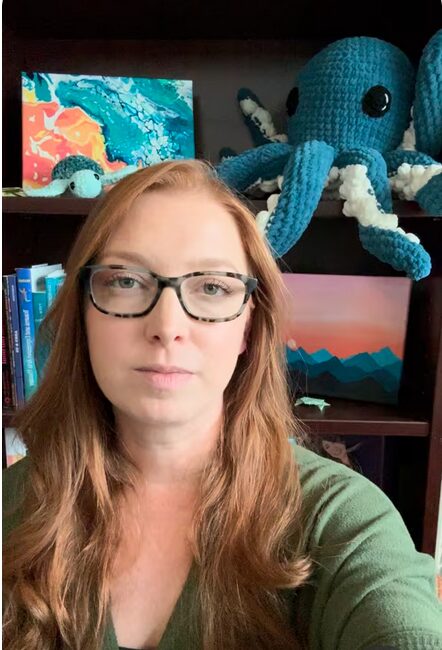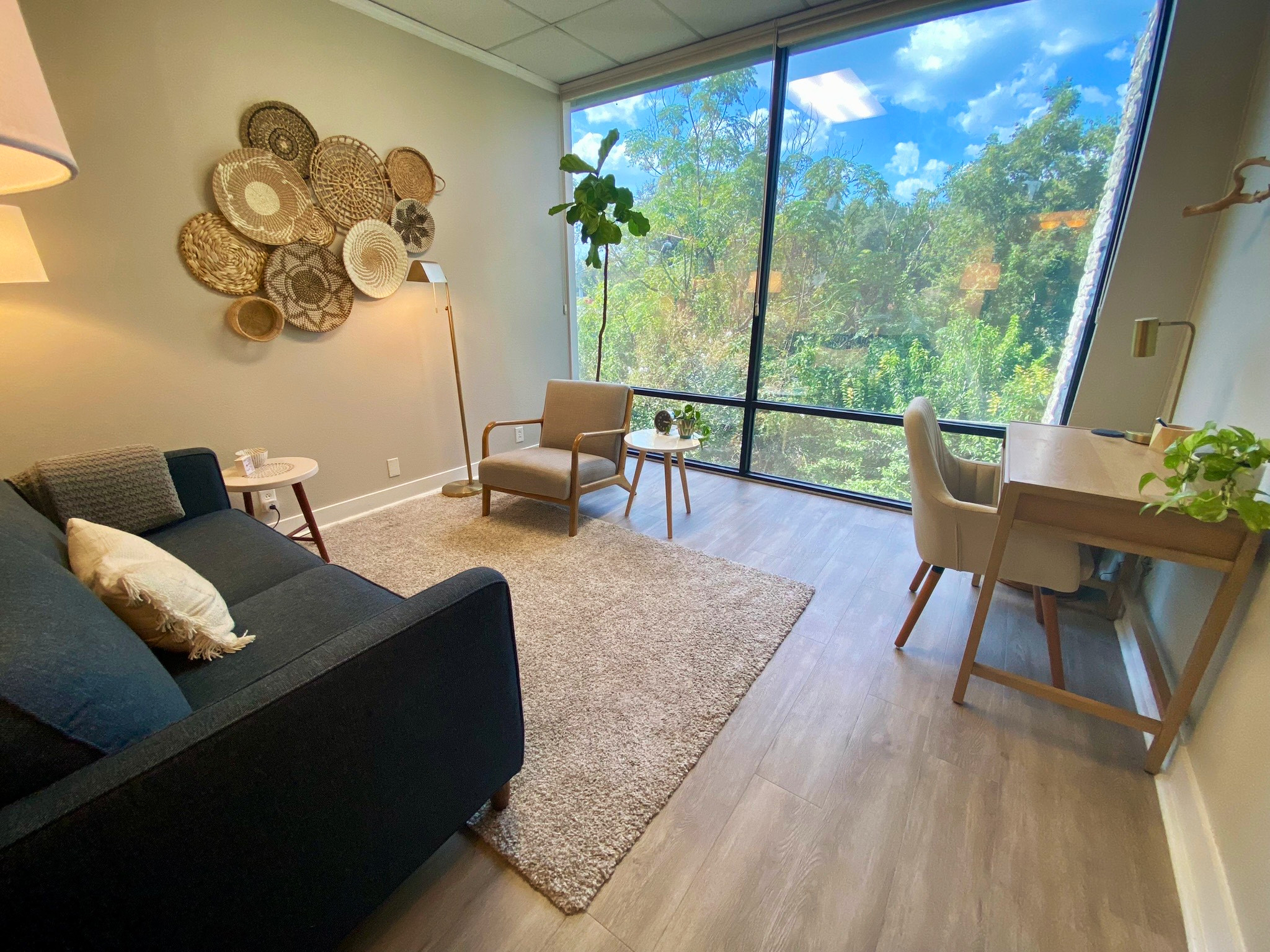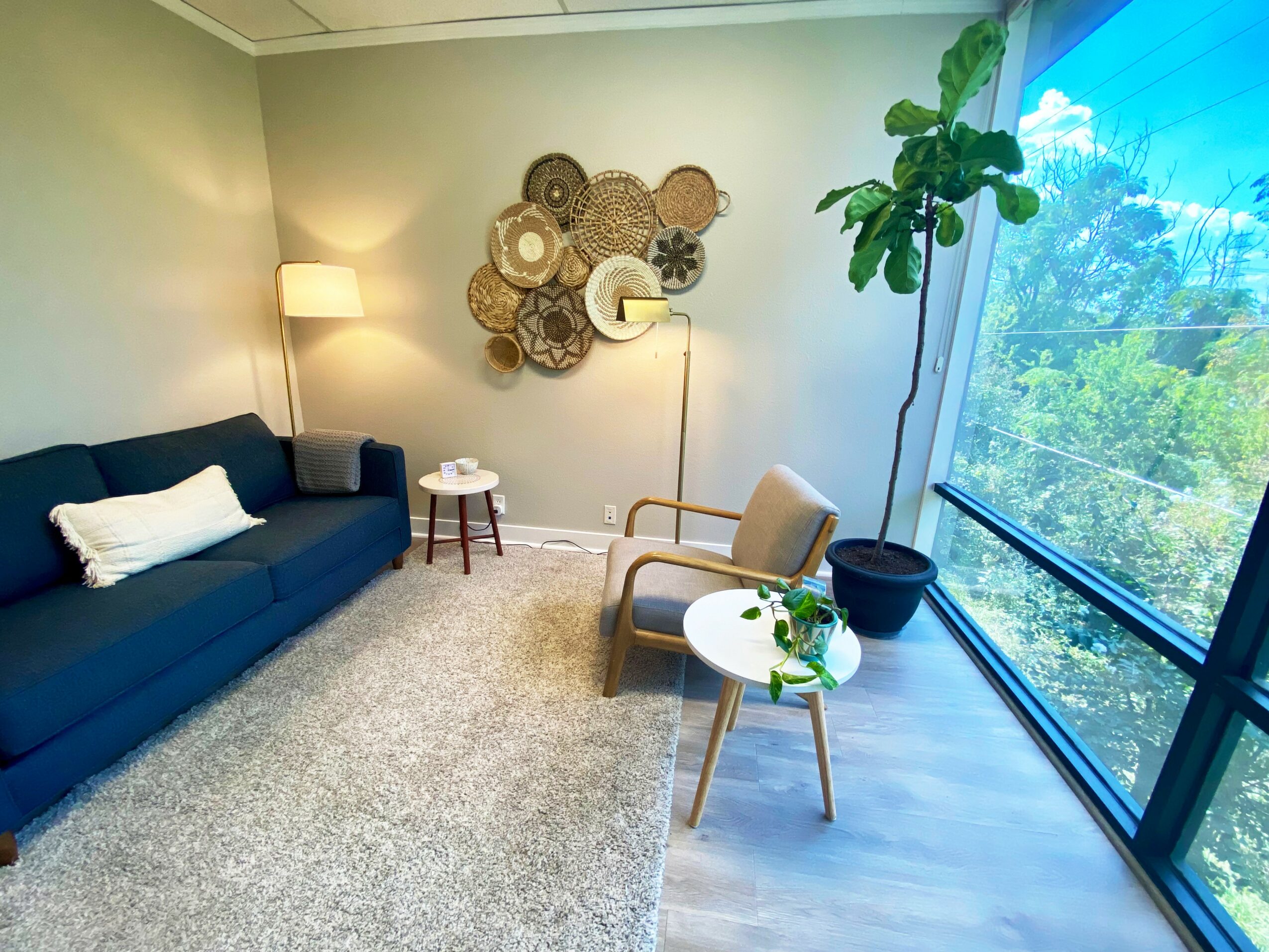

Today we’d like to introduce you to Tiffany Berry.
Hi Tiffany, so excited to have you on the platform. So before we get into questions about your work-life, maybe you can bring our readers up to speed on your story and how you got to where you are today?
My career path took multiple turns before I landed in the world of therapy. I spent 5 years as an elementary school teacher in a local dual-language immersion program. I found so much joy in working with the students – they were sweet, often hilarious, and I loved seeing the look in their eyes when a new concept (the kind of concept that might be seen as mundane to adults) clicks for the first time. Eventually, I was worn down by administrative tasks and unrealistic district expectations of small children… plus the limited upward trajectory and pay, so I switched careers and pursued a license in real estate. It paid the bills, but I realized the job wasn’t fulfilling in the ways I needed. I decided to professionally multitask and took on real estate sales, investment property management, and substitute teaching at a Montessori school simultaneously. While it made scheduling a major logistical challenge, I had cobbled together a work life that met my financial needs and desire for a sense of purpose.
Then COVID hit. My trifecta of income streams immediately halted. And I got to do what many other people of the world did: sit with my thoughts. After a ton of self-reflection on my identity, hopes for my future, and consideration for the imprint I would like to leave on the world, I made the risky decision of applying for a graduate-level counseling program. It felt risky, because it was another major shift in professions – one that required going into student-loan debt – and I was living off savings. But becoming a therapist seemed like the perfect fit. My first thought was that it would give me the opportunity to support kids one-on-one, which is something teachers aren’t really afforded in classroom settings. (Have you ever tried to manage a room of 20ish kindergarteners?) I could start my own practice, work on my terms, make money, AND go into work every day knowing that I am making a difference.
There were a couple of twists from there that significantly impacted my intended trajectory: (1) I decided that I didn’t want to deal with parents who sent their kids to me insisting that their children were THE problem, and (2) I learned that I’m neurodivergent and got diagnosed in my 30s with ADHD. Those two realizations, combined with being raised by parents with medical backgrounds and no qualms discussing sex, led me to start my own therapy practice that focuses on supporting individuals and couples with a neuro-affirming lens (ie: validation that your brain isn’t broken, sometimes people just think differently), plus training in sex therapy (ie: you’re not going to upset or traumatize me by bringing up you sex life in session). I’m low-key obsessed with the work I do now. I help people untangle the complicated thoughts and feelings they have in ways I wish someone had been able to help me do a little earlier on in life. I get to help clients make connections between their thoughts, feelings, experiences, and some of the physical sensations they experience in their bodies, AND I incorporate expressive arts activities into my sessions when it’s helpful. The best part is, I still get to watch new concepts and understanding click in my clients’ eyes.
Can you talk to us a bit about the challenges and lessons you’ve learned along the way. Looking back would you say it’s been easy or smooth in retrospect?
This whole process has not been easy. The self-doubt, the imposter syndrome, and the financial struggles make it hard to stick with at times. Ultimately, the inner-knowing that this is my path and the growth I get to witness in my clients are what keep me going.
Great, so let’s talk business. Can you tell our readers more about what you do and what you think sets you apart from others?
I specialize in supporting clients who are neurodivergent (with an emphasis on late-diagnosed ADHD) and clients who would like for conversations about intimacy not to be off the table in the therapy room. While sexually charged messaging is everywhere, it’s still pretty taboo to deeply discuss your deep feelings or seemingly unique experiences related to sex. Surprisingly, there are statistics showing that most therapists (even couples therapists!) don’t ever bring up the topic of sex with their clients. It’s a huge part of our lives as humans that I didn’t want to overlook professionally, so I got over 200 hours of training to help me understand topics like gender, sexuality, ethical nonmonogamy, and kink in the context of therapy. That way, my clients can show up with more of their full selves in session, and I’m prepared to be present with them in a nonjudgmental way.
When it comes to the ADHD specialization in my practice, the importance for me comes in not just from an inclusivity standpoint, but from a personal one. I always thought I was a little weird. Super anxious. Had to “perform” social interactions. It turns out, those are common experiences of people with ADHD who were socialized as girls, left undiagnosed, and never explicitly taught the kinds of techniques and skills that might help. I had a lot of energy, but it clearly wasn’t socially acceptable to show that, so I internalized it. Instead, it presented as quiet, intense anxiety and racing thoughts. I also didn’t intuitively understand social norms the way others seemed to, and acting out the internal panic I was experiencing definitely wasn’t the way to go, so I studied people. What I mean by that is, since I was a kid, I have been intently observant of how others move and speak to one another. I know now that I was learning how to effectively mask in different environments. As a therapist, I offer my late-diagnosed neurodivergent clients some of the language and understanding they might not have learned from others. Plus, it can help to have a therapist who is able to help track your trains of thought and give you a break from having to mask in session too.
I see clients in-person in Austin, and virtually across both Texas and Colorado.
What makes you happy?
This is a big question and, even as a therapist, happiness has always been hard to define for me. I find joy in connection with others, and I find relief when I get to unmask – or be my true, full, goofy self – with people who see me without judgment. Plus cool weather, ice cream, and nerdy sci-fi books & TV shows.
Pricing:
- Individual Therapy (50-minute session) – $135
- Relational/Couples Therapy (50-minute session) – $150
- Individual Therapy (80-minute session) – $216
- Relational/Couples Therapy (80-minute session) – $240
Contact Info:
- Website: https://www.tlctherapyatx.com

















